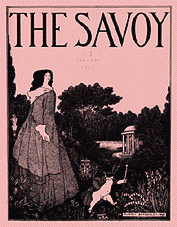Timeline of Events related to Women's Rights
Timeline
Table of Events
| Date | Event | Created by |
|---|---|---|
| 17 Aug 1839 | Act on Custody of Infants
Related ArticlesRachel Ablow, “‘One Flesh,’ One Person, and the 1870 Married Women’s Property Act” Kelly Hager, “Chipping Away at Coverture: The Matrimonial Causes Act of 1857″ Jill Rappoport, “Wives and Sons: Coverture, Primogeniture, and Married Women’s Property” |
David Rettenmaier |
| 28 Aug 1857 | Matrimonial Causes Act of 1857
ArticlesKelly Hager, “Chipping Away at Coverture: The Matrimonial Causes Act of 1857″ Related ArticlesRachel Ablow, “‘One Flesh,’ One Person, and the 1870 Married Women’s Property Act” Jill Rappoport, “Wives and Sons: Coverture, Primogeniture, and Married Women’s Property” |
David Rettenmaier |
| 9 Aug 1870 | 1870 Married Women's Property Act
This Act established limited protections for some separate property for married women, including the right to retain up to £200 of any earning or inheritance. Before this all of a woman's property owned before her marriage, as well as all acquired after the marriage, automatically became her husband's alone. Only women whose families negotiated different terms in a marriage contract were able to retain control of some portion of their property. ArticlesRachel Ablow, "On the Married Woman's Property Act, 1870" Related ArticlesKelly Hager, “Chipping Away at Coverture: The Matrimonial Causes Act of 1857″ Jill Rappoport, “Wives and Sons: Coverture, Primogeniture, and Married Women’s Property” Anne Wallace, “On the Deceased Wife’s Sister Controversy, 1835-1907″ |
David Rettenmaier |
| 14 Aug 1885 | Criminal Law Amendment Act
Related ArticlesMary Jean Corbett, “On Crawford v. Crawford and Dilke, 1886″ Andrew Elfenbein, “On the Trials of Oscar Wilde: Myths and Realities” |
David Rettenmaier |
| Apr 1895 to May 1895 | Trials of Oscar Wilde
ArticlesAndrew Elfenbein, “On the Trials of Oscar Wilde: Myths and Realities” |
David Rettenmaier |
| Jan 1898 to Apr 1898 |
|
David Rettenmaier |
| 17 Jun 1911 | Women's Suffrage Procession at Coronation of George VIn this famous suffrage procession marking the Coronation of George V, the banner designed by Laurence and created by Clemence in 1908 for the Kensington Women’s Social and Political Union made one of its numerous appearances in public parades. The striking banner, “From Prison to Citizenship,” features the suffragist colours, depicting a white figure on a purple background, decorated with green vines. The design was so popular it was also incorporated into a postcard for wider distribution. Clemence personally enacted this slogan later in 1911, when she spent a week in Holloway Prison for refusing to pay property taxes until she was granted full citizenship. Her act of civil disobedience did not grant her full citizenship, but it did add strength to the movement. Some women got the vote in 1918, but it took until 1928 for universal female suffrage to be achieved in the United Kingdom (Liddington, Vanishing). |
Lorraine Kooistra |
| circa. The start of the month Spring 2022 | testtest Related Links: https://editions.covecollective.org/chronologies/russian-empire-first-acquires-ukraine |
Carrie Sickmann |



